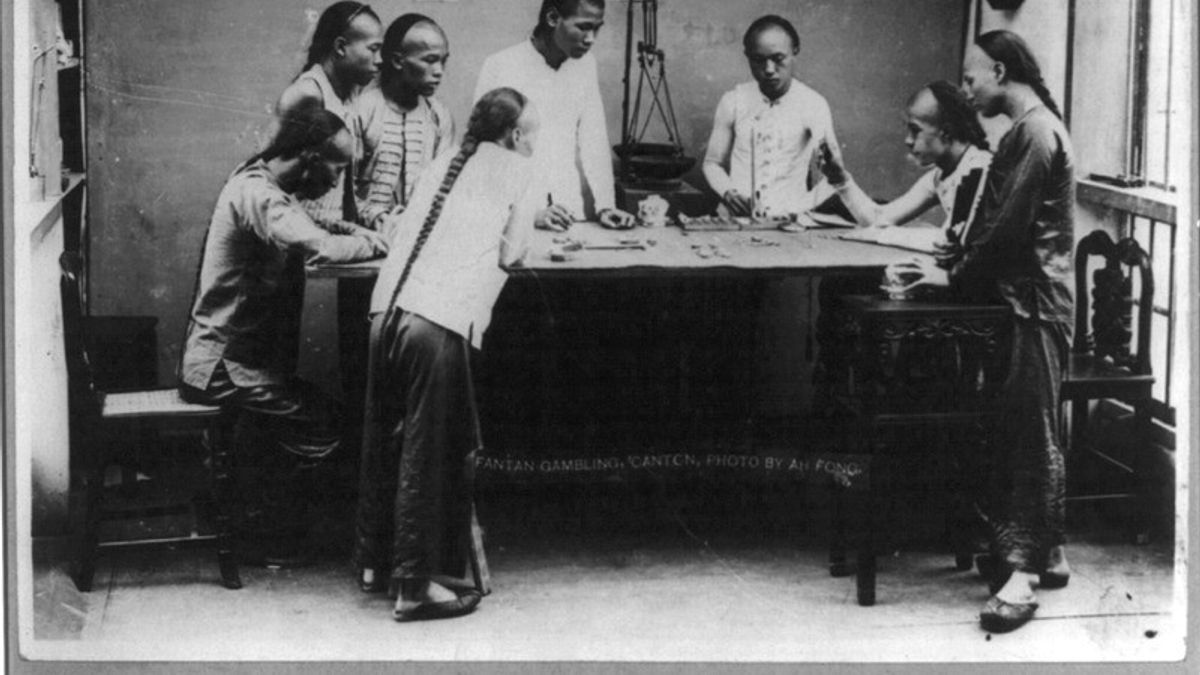JAKARTA - The Dutch colonialists once ruled over the Chinese as special citizens in Batavia (now: Jakarta). The attitude of the Chinese people who are diligent, tenacious, and clever is the estuary. Moreover, the Chinese were the main drivers of Batavia's economy. They are free to do any business. Looking for more fun.
Gambling, for example. Gambling houses appear everywhere. The owner of the power can not refuse the famous entertainment belonging to the Chinese. In fact, it is facilitated. All because of the promising profits from the gambling tax in Batavia.
Batavia is like a gold field. At least that was the view of the Chinese in the early days of Dutch colonialism. The tenacious and diligent attitude of the Chinese were seen by the Dutch authorities as second to none. The Dutch trading company VOC was attracted. They believed that Batavia could not be built without the presence of the Chinese. Vice versa.
The Chinese believed that living in Batavia would bring a large amount of money. The symbiosis of mutualism makes the two quite close. The Dutch treated the Chinese as well as possible. While the Chinese became citizens who obeyed the Dutch taxation.

The Dutch speculation that the Chinese were special citizens was finally answered. The Chinese were able to control all lines of the economy in Batavia. Even though some of them chose to leave Batavia. The majority of Chinese at home enjoyed the privilege of living in Batavia.
All kinds of opportunities can be explored. The Chinese alias can be anything. Among others, become carpenters, credit workers, traders, and so on. In fact, this privilege - even though it was disturbed - lasted until the VOC collapsed and was replaced by the Dutch East Indies colonial government.
“Chinese people, said dr. Strehler (Dutch Indies government doctor), is known to be diligent, smart, intelligent, and frugal. It seems that they live to be self-employed and sell services in society with other useful endeavors. Those who did not trade worked as furniture craftsmen, blacksmiths, locksmiths, carriage makers, carpenters, watchmakers, tailors, shoemakers, cotton and silk weavers, porcelain, ceramic, and pottery craftsmen.”
“They worked all day, even when the sun was burning hot in Batavia! Perhaps they are strong enough to work when other people are hot because they only wear thin shorts when working in broad daylight! When the city of Batavia was quiet because everyone was resting at home, on the street there were still Chinese merchants ringing the klontong (a kind of bell). Many of them became land tenants, credit providers, traders, and almost all of them were good at finding opportunities,” said Frieda Amran in the book Batavia: The Story of Captain Woodes Rogers & dr. Strehler (2012).
Gambling HouseThe existence of the Chinese in Batavia was full of dynamics. Instead of just moving the economy, the majority of Chinese people have joined in with bad habits. Gambling is his name. As a result, gambling and the Chinese have become an image that cannot be separated.
The passion for gambling made Chinese-owned gambling houses mushroom in Batavia. Traces of gambling houses have even existed since 1620. It is said that there are more gambling houses than houses of worship, schools, and orphanages in Batavia.
Gambling games from their ancestral lands were all bought up to Batavia. Miraculously the game remains popular. Also loved. People in Batavia also know a variety of gambling games. These include dice, cards, po, to posing.
Those who witnessed the Chinese people gambling firsthand would have the same opinion. The Chinese people's penchant for gambling is second to none. They are considered the most determined gamblers by travelers from Europe. Everything can be bet on the gambling table. Money, goods, slaves, wives, even their children.
The Dutch colonialists themselves had no power to break the chain of bad behavior. The moral revolution that laid the foundation for Dutch colonialism in the archipelago, Governor-General Jan Pieterszoon Coen did not want to interfere with the disputes of the Chinese people - if not to say, very stupid.

An ancient strategy played by the Dutch. Which, when enforcement could not be carried out, the Dutch chose to step in and regulate gambling. Chinese people who want to open gambling houses are allowed on conditions. A condition that only relates to what benefits the Dutch can get.
The Chinese could get permits to build gambling houses if they dared to offer the Dutch large sums of money. The money becomes a kind of 'lubricant' so that permits can be processed quickly. The owner of the power only ordered to close the door of the gambling house to all Europeans in Batavia. All so that the morale of Europeans would not plummet with evil.
“Despite many acts of violence and commotion, gambling in Batavia is still rampant because it cannot be eradicated so it is better to use it by collecting taxes. From Kasteel Batavia's records it can be read how on the first day of each new year, gambling permits are sold to the Chinese citizen who made the highest bid.”
“The auction for gambling licenses was conducted in the main room of Kasteel Batavia in front of the regional prosecutor and the judges of the Private Class Court. Monthly records show that gambling rent is the second most common income after head tax and far exceeds market and shop rents: the amount is between 700 and 1,200 rials per month,” said historian Hendrik E. Niemeijer in the book Batavia: Colonial Society of the XVII Century (2012). ).
The English, Chinese, Japanese, Arabic, and French versions are automatically generated by the AI. So there may still be inaccuracies in translating, please always see Indonesian as our main language. (system supported by DigitalSiber.id)









